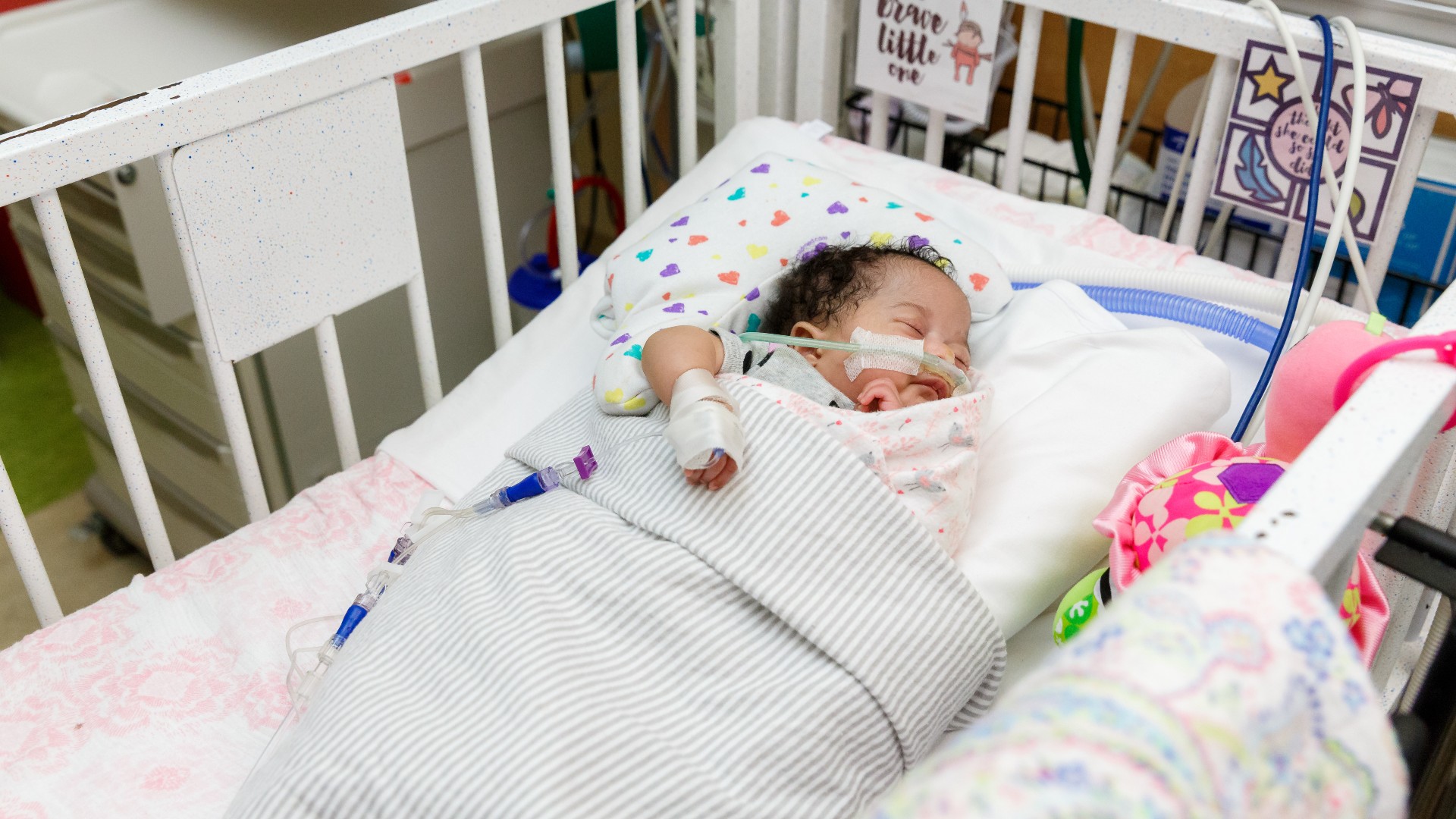Condition
Apnea of Prematurity
What You Need to Know
Apnea is a term that means breathing has stopped for more than 20 seconds. It can happen in full-term babies, but it's more common in premature babies.
Key Symptoms
The most common symptoms of apnea of prematurity are:
- Bluish color to the skin
- Decreased heart rate
- Low oxygen levels
Diagnosis
Doctors typically diagnose apnea of prematurity by:
- Checking blood oxygen levels
- Blood tests
- X-ray
- Ultrasound
- Sleep studies
Treatment
Many premature babies will “outgrow” the condition. If treatment is needed, it may include:
- General care to control body temperature and body positioning
- Oxygen
- Nasal continuous positive airway pressure (CPAP)
- Medication
- Blood transfusion
Schedule an Appointment
Our pediatric specialists provide personalized care for your child’s physical, mental and emotional health needs. Meet our providers and schedule an appointment today.
Frequently Asked Questions
What is apnea of prematurity?
What causes apnea of prematurity?
What are the symptoms of apnea of prematurity?
How is apnea of prematurity diagnosed?
How is apnea of prematurity treated?
What are possible complications of apnea of prematurity?
How is apnea of prematurity managed?
Meet the Providers Who Treat Apnea of Prematurity
Departments that Treat Apnea of Prematurity

Neonatology
Whether your infant has arrived prematurely or has a critical illness, the top-ranked neonatology team at Children's National Hospital assists in coordinating every service you and your baby need, including consultations, assessments, emergency treatments and continuing care.

Help Kids and Make a Difference
Invest in future cures to help children have brighter futures.







